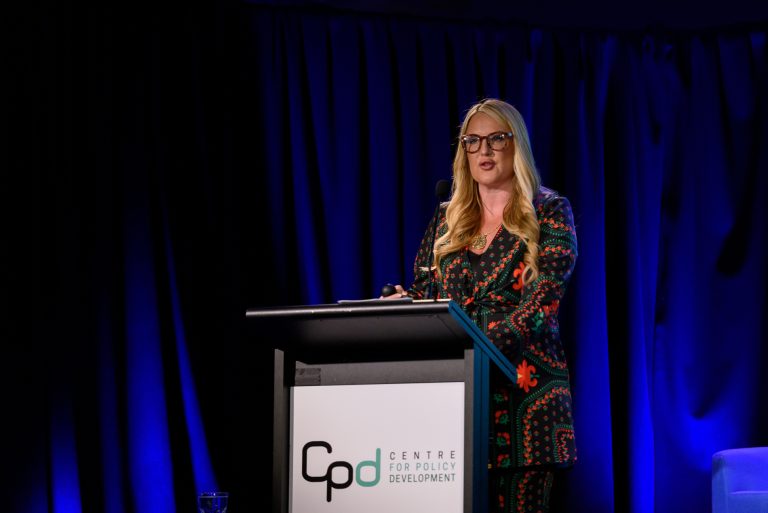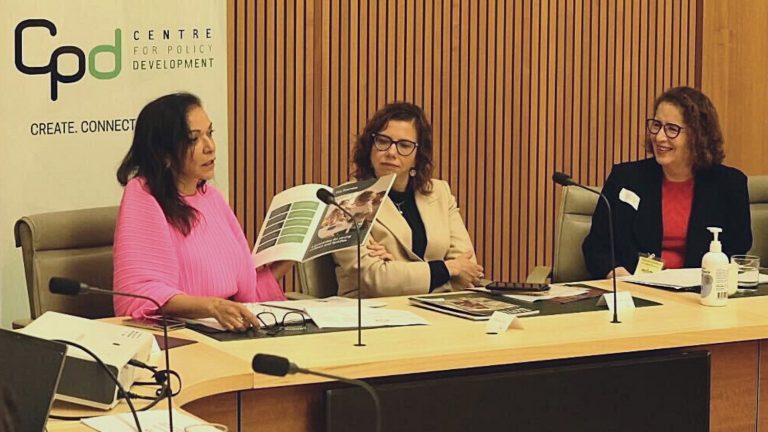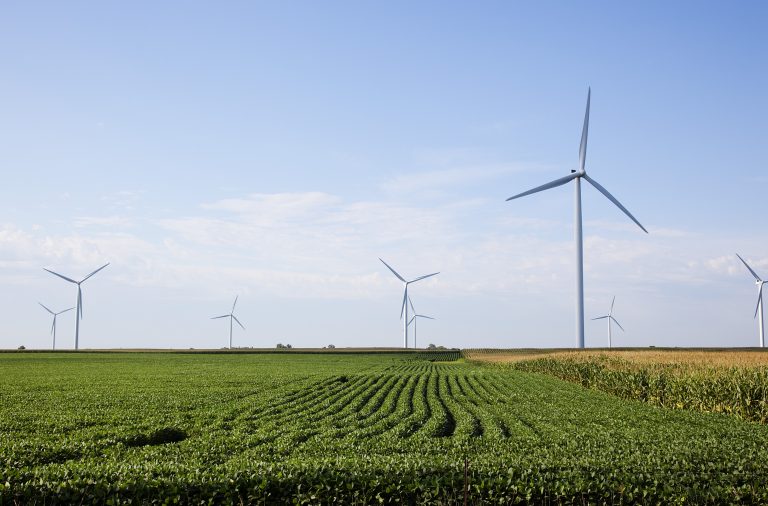
“Every decent man is ashamed of the government he lives under”
HL Mencken
If there’s one thing that defines progressives it’s a belief in progress – that the societies we live in can and should be better than they are. Even if Australian politics was in much better shape than it is we’d probably still be gathered here, pushing to improve it further.
But of course, you don’t start a think tank because you think things are pretty good as they stand, and one of the major motivations for starting the CPD is a belief that politics-as-usual is failing us.
In a time of record government surpluses, when there’s an urgent need for investments to put our economy and environment on a sustainable footing, we’re treated to the spectacle of Peter Costello and the self-described ‘Scrooge McSwan’ in a budget weight-loss competition reminiscent of ‘The Biggest Loser’.
In other areas, such as health and education, Australia seems to be in pretty good shape, but the long-term trends are worrying:
• If you take a snapshot of our current health statistics we measure up pretty well, but we’re moving rapidly towards an American-style ‘two tier’ health system – which is unfair and expensive for Americans, and costly to American business.
• The average performance of our school kids is first-rate compared to the rest of the OECD, but on equity we’re near the bottom of the class. 70 per cent of the difference between Australian schools is due to the differences in the social backgrounds of the students – which means that a child can only be sure of getting a good start in life if they’re lucky enough to be born to the right parents.
And on natural resources, the fact that short term political expediency has overridden long-term sustainability is directly responsible for the poor state of our water and energy policies.
A few years ago Costello announced ‘debt free day’ – the day the government cleared its deficit. But the black hole he was so happy to be rid of has turned up in the bank balances of Australian households.
A large part of Australia’s productivity growth has been built on the grave of the Aussie long-weekend. Australia’s culture of overwork is taking a toll on our relationships – but what ordinary worker, geared to the eyeballs, can take the risk of swapping their spending money for more ‘spending time’?
In years of political manoeuvring based on false either-or equations (either the environment or the economy; either jobs growth or fair wages and conditions) we’ve been wasting the opportunity to put in place a considered and strategic industry policy.
This has been particularly hard for responsible employers. We need public policies that reward companies for doing the right thing, instead of pushing them into a race to the bottom. We need to know that our governments have a viable plan for dealing with climate change – a policy which will allow companies to plan for their future energy costs, and which will reward innovators who are ahead of the market on emissions cuts.
Many of these policy failures are actually based on flaws in the basic assumptions made by today’s policy-makers:
• An unbalanced view of human nature, which divides the whole mysterious and complex species we call humanity into the good who deserve their rewards, and the bad who deserve to be punished.
• An ungenerous view of human motivations, which recognizes only our self-interest and not the other, equally powerful impulses of love, care and compassion.
• A blinkered view of the economy, which fails to recognize, for example, that the economy is a wholly owned subsidiary of the environment, not vice versa.
Yet strangely, those who are concerned about the influence of this narrow worldview on Australian public policy find it hard to get a word in edgewise in Australian public debate.
This is partly the result of years of being on the back foot – too much time and energy has been spent saying ‘no’, and not enough articulating what ‘yes’ might look like. More effort has gone into trying to turn back the clock than developing new ideas for change.
The CPD will address this by developing a positive, viable agenda for fair & sustainable policy change. But our aim is not to replace one blinkered view of reality with another. In a world grown too complex for simple ideologies, the CPD will not be governed by an ‘ism’. In place of isms we’ll offer values and principles. Rather than wasting time on tired debates about big versus small government, diversity versus social cohesion, or that old chestnut ‘greens versus jobs’, we’ll be basing our policy development on the search for a better balance between markets, governments, society and the environment: what’s the right mix of market mechanisms, taxes, subsidies, and regulation for any given portfolio area? Where risks affect all, how much of the burden of risk should be carried at an individual, government or business level? What kind of policy processes do we need to ensure that the widest possible number of citizens have a say in deciding where that line is drawn?
Our approach could perhaps be summed up as ‘pragmatic idealism’ – radical in our hopes, but more concerned with the everyday realities of implementation than either the neo-conservatives and neo-liberals of the present or the socialists of the past.
Together, we’ll be drawing on the ideas of an eclectic group of thinkers – from economists to scientists, sociologists to systems theorists, from seasoned wonks to emerging writers and academics. It’s significant that launching the CPD here tonight we have Julian, a proudly conservative small-l liberal, John, a seasoned public servant with a social democratic bent, and myself – an upstart ideas junkie with a thirst for social change. This is a group of people who may in fact have little in common except a commitment to shared values and a concern that Australia is growing increasingly less sustainable and less fair.
When we talk about values, we’re not jumping on the ‘Australian values’ bandwagon that has been driven around Canberra so much recently. (Some would argue that we gave up any claim to Australian values when we decided to hold our launch on State of Origin night!)
Precisely because they are both vague and ambiguous but deeply felt, values can be easily exploited, and in Australian politics that’s exactly what happens. Values become nothing more than a marketing exercise. We have a commission on minimum wages with the word fair in its name but not in its terms of reference, or talk about ‘family values’ which seems to have nothing to do with valuing families and everything to do with turning private issues into public issues at election time.
Rather than seeing values as something we have already, to be jealously guarded against those who might take them away from us, we see values like freedom, fairness, stewardship and citizenship as qualities to aspire to – markers of progress on a journey with no fixed endpoint.
We don’t have all the answers. But we will keep asking difficult questions, seeking out interesting ideas, collaborating with creative thinkers, and building powerful alliances.
The launch of the CPD is a sign of the times – a time when critics of the status quo are getting smarter about how we work, and clearer about what we’re working towards.
Although our focus is on good policies, we also recognize the need to democratise the policy-making process itself. I’ve spent most of my twenties trying to find creative ways of involving ‘unusual suspects’ in political debate– and if there’s one thing I’ve learnt it’s that people who disagree on almost everything else can agree that they have the right to be heard, and that this right is under threat. The perception that all the big decisions are made behind closed doors or over boozy lunches between old boys is a large part of many people’s disillusionment with politics.
It’s for this reason that the CPD aims to be more than just an ivory tower of ideas. Instead we will be a ‘think and do tank’, providing the missing link between concerned citizens, experts, and policy makers.
Archimedes once said ‘give me a place to stand, and I shall move the earth’. Even though the CPD is only launching tonight, we already have 20 fellows, hundreds of authors, and thousands of members. We hope to give them all a place to stand.
This is an edited transcript of a speech given at the launch of the Centre for Policy Development, Sydney, May 23 2007



